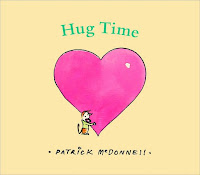
The Immortal Life of Henrietta Lacks is the stunningly true story of a young, black woman growing up in the Baltimore area. Henrietta came from a long line of poor black tobacco farmers without formal education or any real financial means. When illness struck, they relied on the trust and generosity of Johns Hopkins to provide care, at no cost–a trust that was broken when Henrietta Lacks died from cervical cancer in her early thirties.
What Henrietta and her family didn’t realize (for years), was in turn for her care and treatment, doctors retained samples of her cells and tissue upon her death. These specimens were not obtained through informed consent. And unbeknownst to anyone, these specimens would literally change the course of medical history.
Henrietta’s cell and tissue samples were the first that could be maintained and reproduced outside of the human body. Not only did they stay alive, they multiplied at a never-before-seen rate. Her cells were shared with scientists around the world and brought about advancements such as the vaccine for Polio, an understanding of HPV and other cancers as well as other women’s health issues. Completely unaware of their mother’s contribution to science, for many years Henrietta’s descendants were (and still are) living without even basic medical coverage. Ironic, isn’t it?
Have I hooked you yet? If I haven’t, consider this: Henrietta’s cell research (which still goes on today) brought to light serious and ethical concerns around medical consent, the need of specimens for advancements in medicine and whether or not individuals or their families should be compensated for providing or donating cell or tissue samples that lead to cures and medical advancements. The medical community is split on the issue and even after reading this wonderful book, I am not sure where I stand. I know that Henrietta and her family had a right to know her cells were being used. I also know that her family–especially her family (and everyone in the country for that matter)–should have access to medical care delivered by providers they can trust.
As a liberal arts minded person with no penchant for anything to do with math or science, I never would have guessed I would have devoured a book like this. Thanks to Skloot’s extensive research, compassion for the Lacks family and storytelling talents, I couldn’t put it down. The book alternates chapters between Henrietta and her family’s lives and the science and medical communities’ use of her cells for personal and professional gain. The perceptions and opinions the Lacks family has today of the medical community is understandably complicated. But for once, someone told Henrietta’s story truthfully, and for that the Lacks have found a small piece of peace and honor for the woman they hardly knew.
Rating: 5 stars
Pages: 384
Genre: Non-fiction

 It’s Thanksgiving week and there’s so much for which I am grateful, the least of which is extra time! But with extra time that actually means less time for reading and more time for equally important activities like connecting with family and friends, hitting the movie theater, sleeping in, playing games, and all things that a holiday weekend is meant to hold.
It’s Thanksgiving week and there’s so much for which I am grateful, the least of which is extra time! But with extra time that actually means less time for reading and more time for equally important activities like connecting with family and friends, hitting the movie theater, sleeping in, playing games, and all things that a holiday weekend is meant to hold. This week I am back to my favorite new genre, the Graphic Novel, discovered while undertaking this weekly reading challenge! No matter that it’s really the only new genre I have tried all year. It’s also no matter that it’s only the second time I have read from this genre. I mean who’s keeping score? Okay, I am. And at the end of the year I am going to have this wicked cool post full of stats and numbers (or as many stats and numbers that a Communications major can muster) and my fellow book nerds are going to love it and some will think it’s dumb and that’s okay, too.
This week I am back to my favorite new genre, the Graphic Novel, discovered while undertaking this weekly reading challenge! No matter that it’s really the only new genre I have tried all year. It’s also no matter that it’s only the second time I have read from this genre. I mean who’s keeping score? Okay, I am. And at the end of the year I am going to have this wicked cool post full of stats and numbers (or as many stats and numbers that a Communications major can muster) and my fellow book nerds are going to love it and some will think it’s dumb and that’s okay, too.